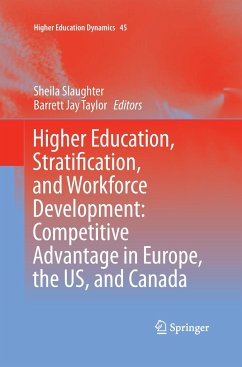This work analyses how political economic shifts contribute to competition within higher education systems in the US, EU, and Canada. The authors highlight competition for prestige and public and private subsidies, exploring the consequences of these processes through theoretical and empirical analyses. Accordingly, the work highlights topics that will be of interest to a wide range of audiences. Concepts addressed include stratification, privatization of formerly public subsidies, preference for "high tech" academic fields, and the vocationalization of the curriculum (i.e., Science, Technology, Engineering and Mathematics: [STEM] fields, selected professions, and business) rather than the liberal arts or the Humboldtian vision of the university. Across national contexts and analytic methods, authors analyze the growth of national policies that see universities as a sub set of economic development, casting universities as corporate research laboratories and education as central to job creation. Throughout the volume, the authors make the case that national and regional approaches to politics and markets result in different experiences of consequences of academic capitalism. While these shifts serve the interests of some institutions, others find themselves struggling to meet ever-greater expectations with stagnant or shrinking resource bases.
Bitte wählen Sie Ihr Anliegen aus.
Rechnungen
Retourenschein anfordern
Bestellstatus
Storno








